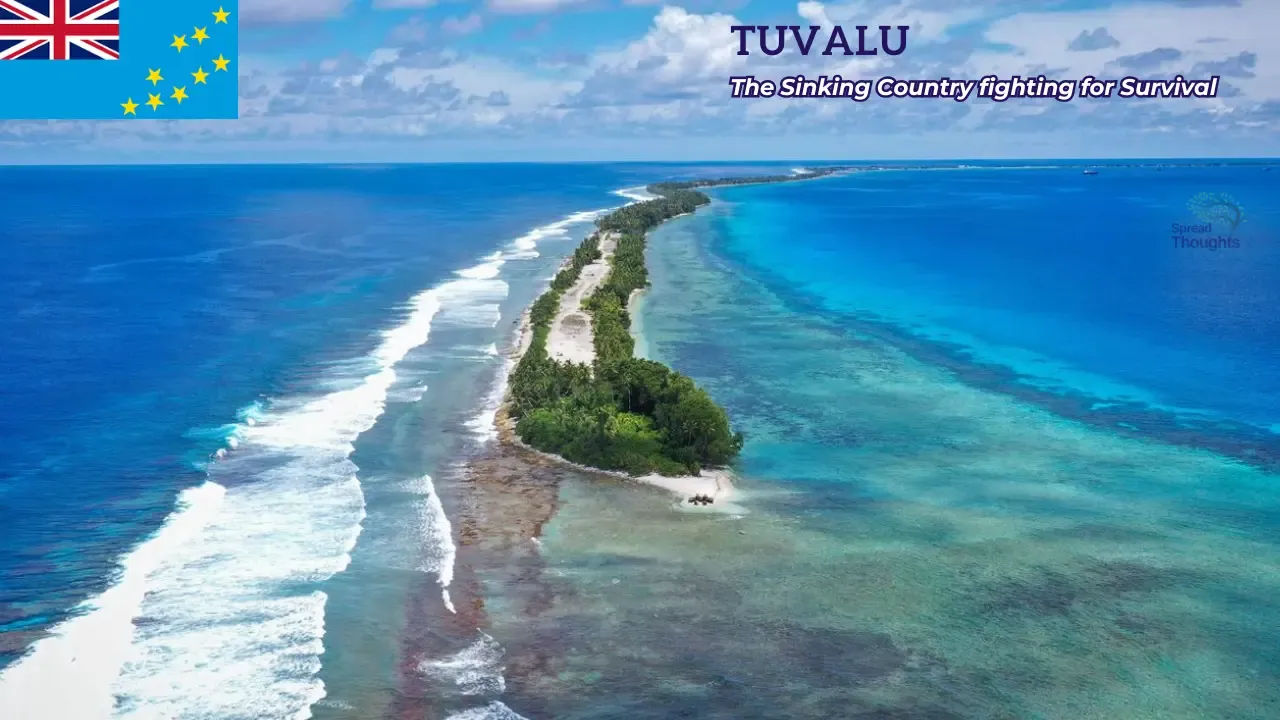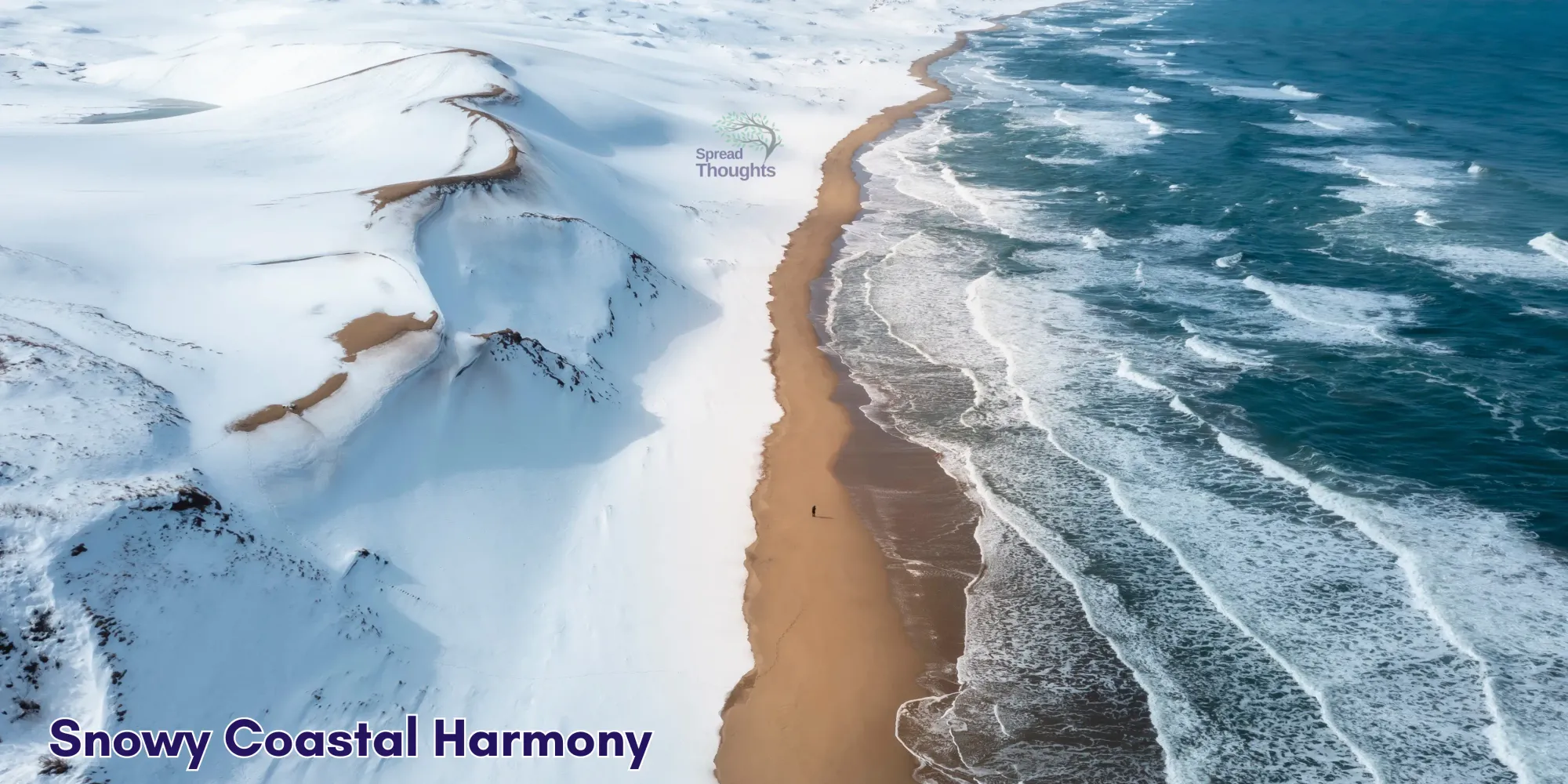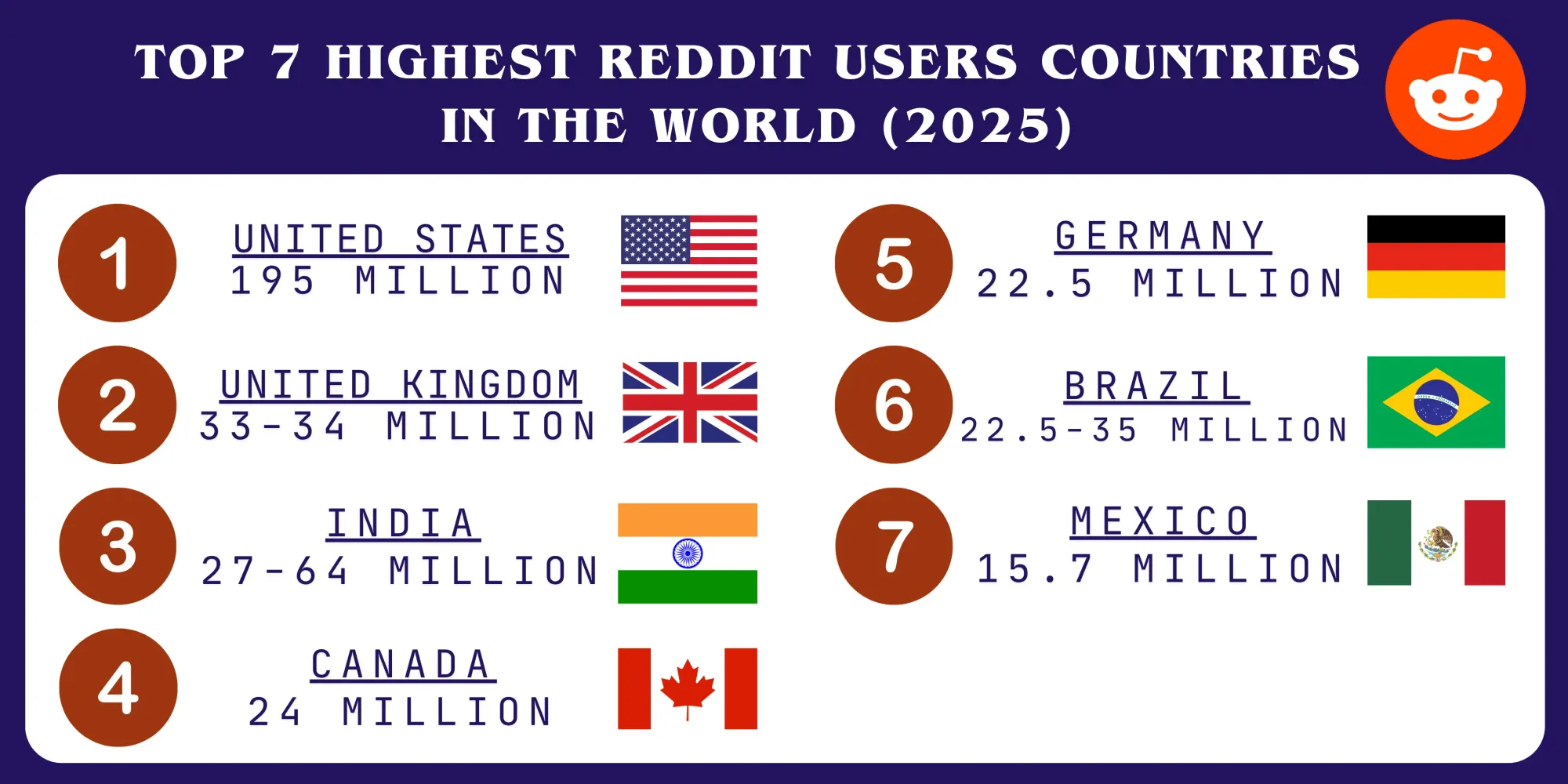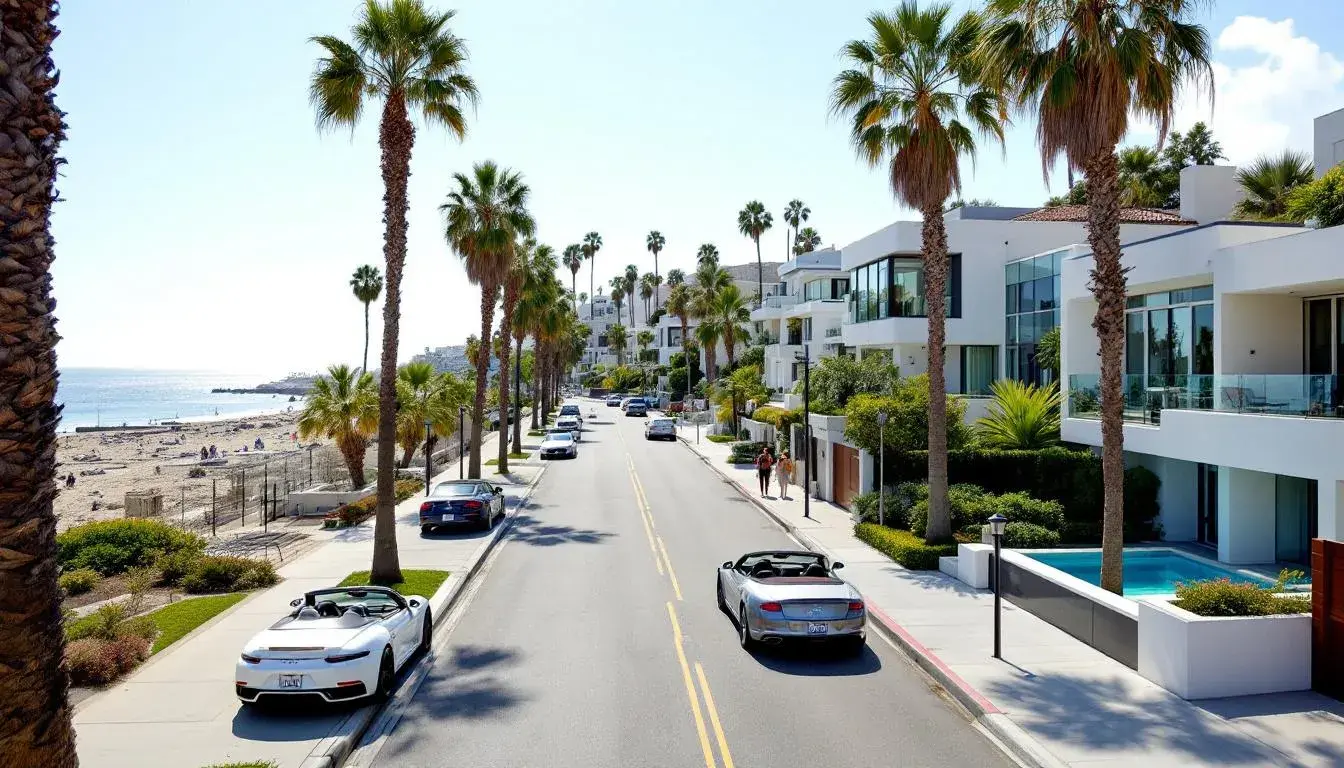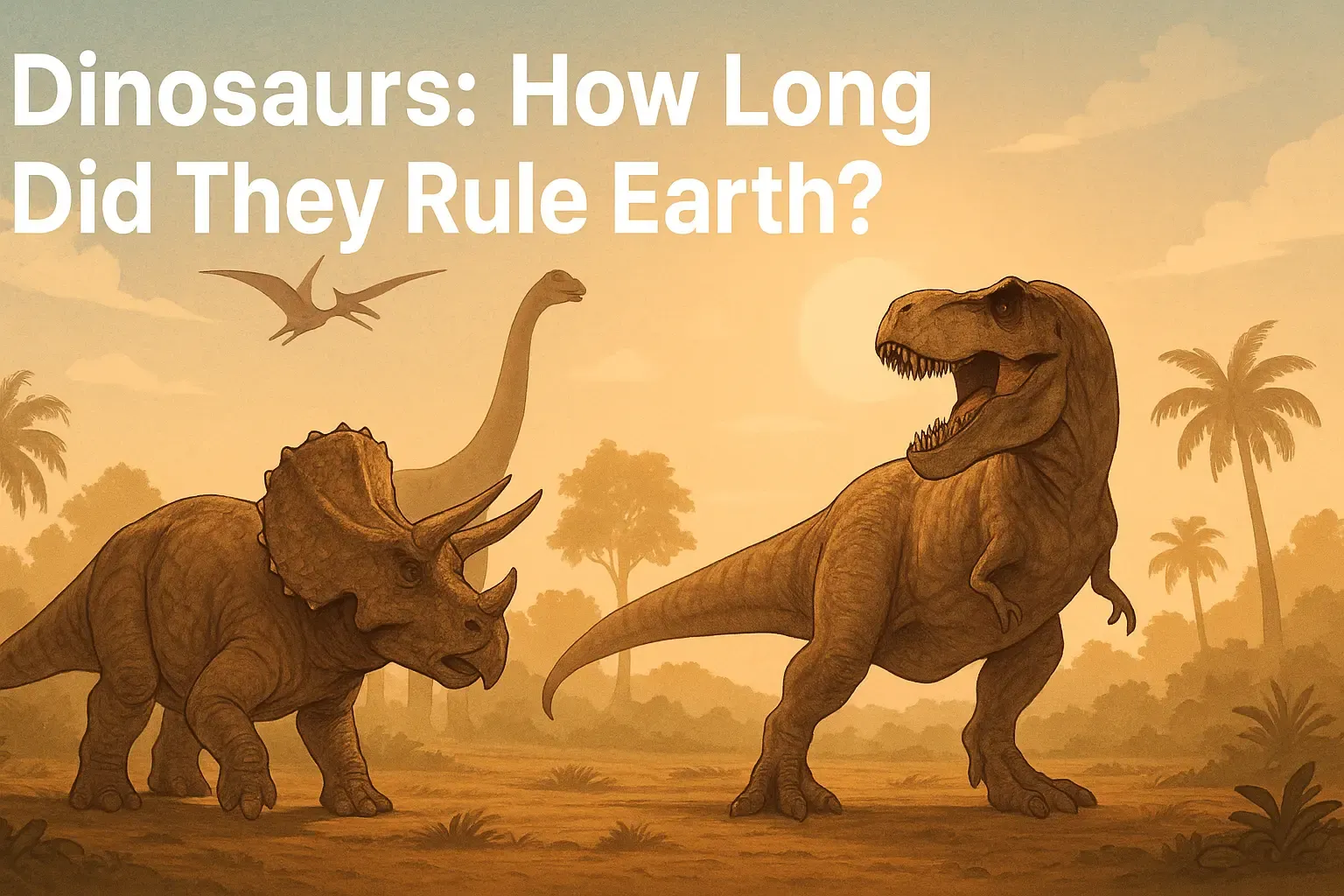Tuvalu is the least visited and most remote country on the globe. This tiny island nation lies in the Pacific Ocean between Hawaii and Australia. It comprises nine coral atolls and is spread across just 26 sq. kilometers. With a population of just 11,000 people, it is one of the least populated and smallest countries in the world.
Yes, Tuvalu may be a tiny island nation, but it has a rich cultural heritage, traditions, and is a natural wonder. The beautiful country is under a severe threat due to climate change, as the increasing sea levels are creating an alarming situation for the country. In this article, you’ll discover the life in Tuvalu, its fight for survival, and the future of the sinking paradise.
Life in Tuvalu: A Tiny Vibrant Nation
Tuvalu Map & Population
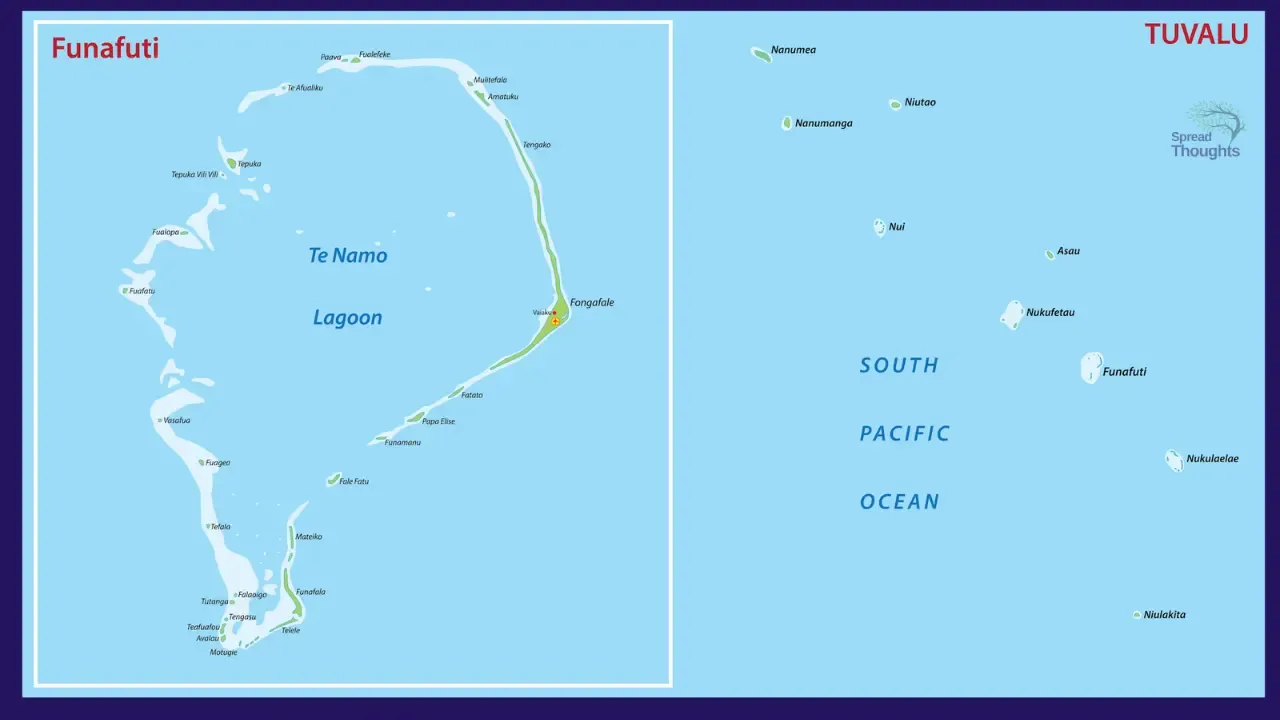
Tuvalu is a cluster of nine small islands, with the majority of the population residing on Funafuti Atoll, the capital of Tuvalu. The islands are at a very low level, with the highest point of the country at just 15 feet above sea level. This makes the country highly risky during storms and flood situations. A population of only 11,000 people establishes a pure bond, developing a tight-knit community where every individual is in contact with each other. There are no cities, as the country has only small villages with a single street, and the locals adopt a simple and traditional life.
Tradition & Culture
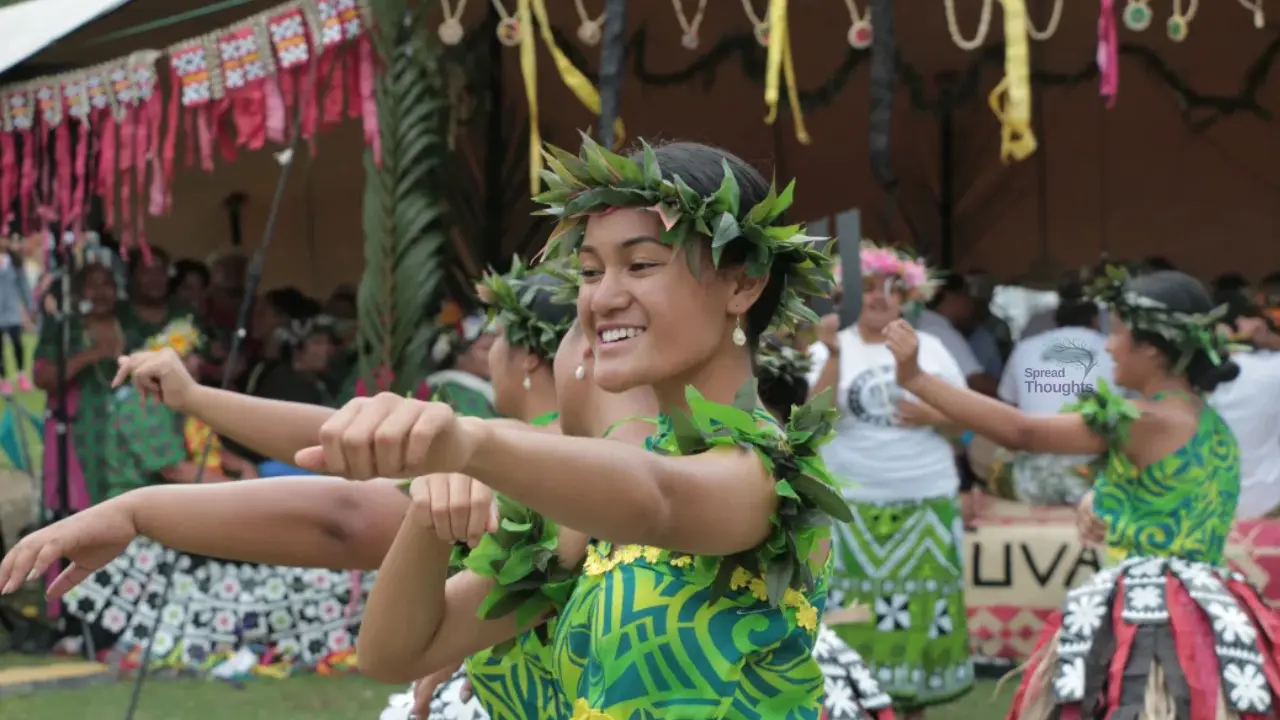
Tuvalu seems to have deep roots in Polynesian tradition and follows its culture. They believe family and community should always be a priority. People meet each other for storytelling, traditional dances, and you’ll be surprised to know that if there is a wedding in the country, everyone is invited to have the feast. They are popular for their unique Fatele dance, a happening dance performance that involves singing and drumming as well.
Which is the Tuvalu language?
Tuvalu has adopted English and Tuvaluan as its official languages, but mainly Tuvaluan is preferred by the locals in day-to-day life. The daily meal includes fish, coconut, taro, and breadfruit, alongside some imported food. The Tuvalu Flag has a light bluish background, depicting the significance of the Pacific Ocean. It also has a Union Jack on the upper left corner, expressing its historical relations with the UK. The nine yellow stars on the right side represent the Nine islands.
What do they do for their livelihood?
The economy of the country is small and mainly depends on:
- Fishing & Farming: The locals showcase their skills by catching fish and growing crops for their survival.
- Remittances: The qualified people of Tuvalu choose to move abroad, particularly to Australia and New Zealand, and send their earned money home.
- .tv Domain: The domain name plays a vital role for most of the entertainment and streaming websites. Tuvalu earns an annual income of around 12 million AUD by leasing its country code domain .tv. For instance, the most popular online streaming network, Twitch, uses the domain code .tv.
- Foreign support: The neighboring countries, like Japan, Australia, and Taiwan, lend them financial help, providing funds for developing advanced infrastructure.
It is a surprising fact that tourism is almost non-existent in this country. Around 3000 tourists visit Tuvalu throughout the year, and the sinking country has only 4 hotels and one airport in the country.
Climate Change: An Imposing Threat to Tuvalu
Increasing Sea Level
Tuvalu is the most affected countries across the globe about climate change. As the landmass is just 15 feet above sea level, even a small rise in the sea level can lead to a flood situation, harm crops, and contaminate freshwater supplies. Researchers suggest that the sinking country will be uninhabitable by 2100 if global warming continues to raise the temperature. The country is currently facing severe storms, coastal erosion, and saltwater intrusion, making it a daunting task for the locals to survive in Tuvalu.
Daily Life Challenges
The locals residing in Tuvalu face multiple challenges due to climate change:
- King tides- The high tides frequently create a flood situation in the country.
- Scarcity of drinking water- The saltwater impacts freshwater supplies, reducing the available clean water.
- Food insecurity- The saltwater also harms the crops of taro and breadfruit, disturbing their local food resources.
- Forced migration- The forced migration is prevalent as the families are considering shifting to Australia or New Zealand for their better future.
Concerns to protect Tuvalu
The local government and several international organizations have tied knots to protect the country through:
- Terrain rehabilitation- Increasing the level of land above the sea level to avoid frequent flooding.
- Seawall & barriers- Constructing protective structures near the coastal areas.
- Climate negotiations- Urging superpower countries to cut their carbon emissions.
- Digital nation initiative- Recently, Tuvalu revealed their plans in 2022 to develop a digital twin of the country in the metaverse, aiming to preserve their culture online if their country sinks.
However, a complete global effort to reduce greenhouse gas emissions may prevent the sinking country from disappearing.
Things to keep in mind while visiting Tuvalu
How to reach Tuvalu?
Are there any flights to Tuvalu? Reaching the destination is not straightforward. You can reach Tuvalu by taking a flight from Fiji. The Fiji Airways operates flights to Tuvalu only two to three times a week. As you reach there, do not look for public or private transportation, as there is none! There are no taxis, and people mostly walk or travel by riding motorbikes. Only government officials and special category have cars as there is no space to park the vehicle.
What to Expect?
Do not expect luxury or hospitality. It is an ideal destination for travelers who are up for an off-beat adventurous experience. The islands have:
- No reputed hotels- There are just a few guesthouses and homestays.
- No luxury restaurants- Most of the food is cooked by locals and sold at small street shops.
- No malls- There are only a few small stores that sell essential goods.
- Connectivity- Electricity and internet access are unreliable.
Best Place to Visit in Tuvalu
Tuvalu is famous across the globe for its wonderful lagoon beaches, especially the one in Funafuti. The Funafuti Lagoon is a huge, shallow water mass enclosed by small islets. You are amidst the crystal clear waters, amazing sandy beaches, and vibrant marine life. If you’re interested in water activities like snorkeling, swimming, and enjoying a stunning sunset view, then Tuvalu Laguna Beach is an absolute paradise for you!
Final Words
Tuvalu is a wonderful but fragile island nation facing a survival crisis. The people residing there are still resilient and hopeful, but it is the increasing sea levels and strong storms that continue to threaten them, making their native place uninhabitable. The Tuvalian government is urging the world to cut off carbon emissions and extend its support to these small islands like Tuvalu.
If you’re willing to undergo an adventure and are in search of one of the most unique places on this planet, Tuvalu is the perfect destination. It is recommended to visit this island soon, as climate change may sink this paradise island forever!
FAQs
Where is Tuvalu located?
Tuvalu is a tiny island nation that lies between Australia and New Zealand in the Pacific Ocean.
Is it easy to travel to Tuvalu?
No, reaching Tuvalu is a bit difficult. The Fiji Airways operates flights from Fiji to Tuvalu only on certain days of the week.
Is it safe to visit Tuvalu?
Yes, there is no crime in the country. The only risk attached is the risk of flooding due to climate change.
Which currency is used in Tuvalu?
Only the Australian Dollar is used in Tuvalu. There is only one bank in the country, and debit cards, credit cards, and digital payment is not accepted.
Do people of Tuvalu speak English?
Yes, English is widely spoken across the island. However, the locals prefer to communicate in the Tuvaluan language.
Is Tuvalu sinking?
The researchers have estimated that 2100 is, most remote country on the globe. This tiny island nation lies in the Pacific Ocean between Hawaii and Australia. It comprises nine coral atolls and is spread across just 26 sq. kilometers. With a population of just 11,000 people, the island may disappear due to rising sea levels.



